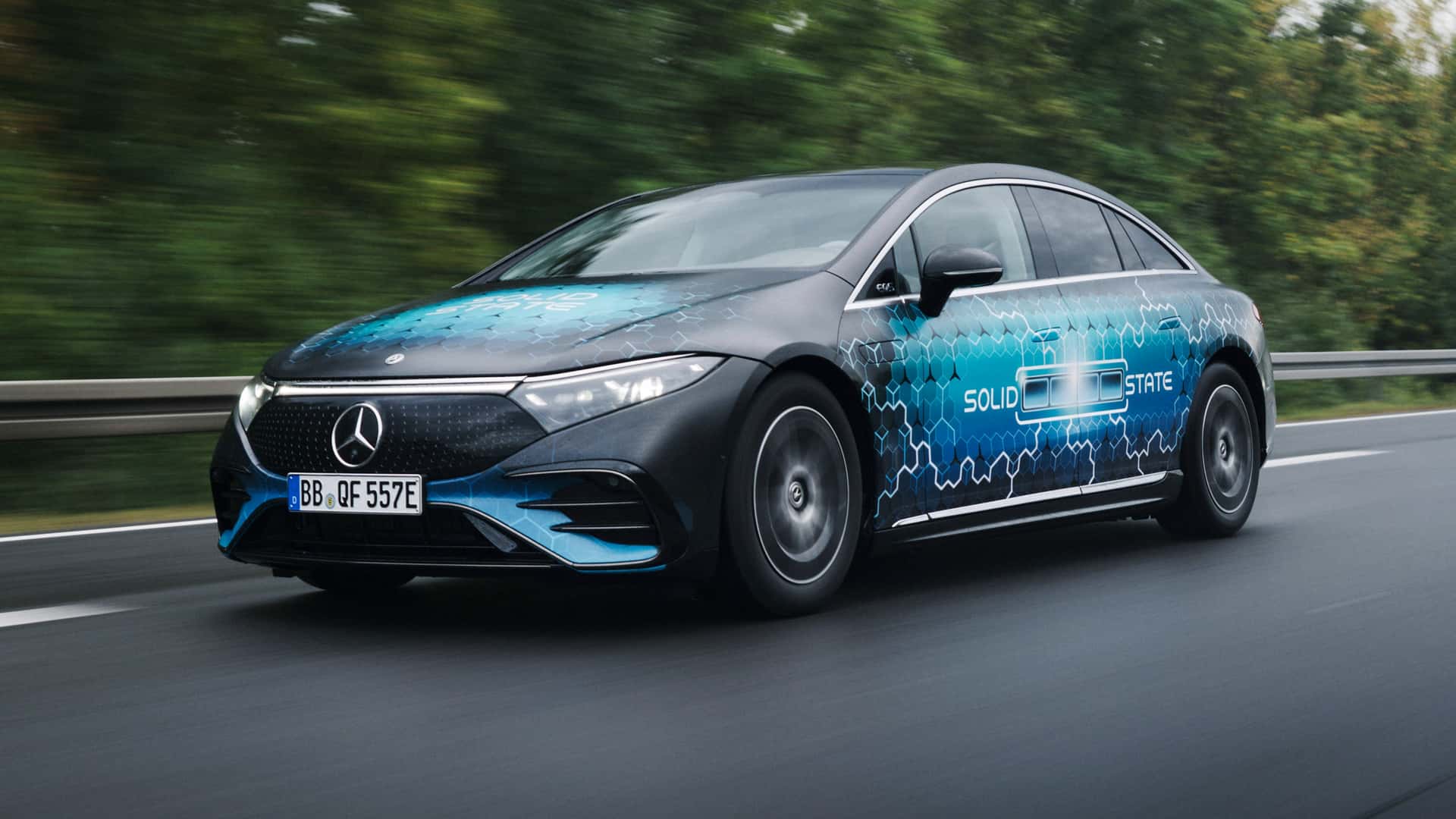
- A lightly modified Mercedes-Benz EQS electric sedan drove over 700 miles on a full charge.
- It still had over 85 miles of range to spare when the trip was over, making the performance even more impressive.
- The real-world test was made possible by Factorial’s solid-state batteries.
Solid-state batteries are getting closer to reality, folks, and their potential is huge. Mercedes-Benz, which is working with Factorial Energy to bring the breakthrough packs to market sooner rather than later, just proved that long-distance travel with electric cars could soon do without intermediate charging stops.
That’s because a lightly modified Mercedes-Benz EQS powered by Factorial’s solid-state battery just traveled a whopping 749 miles (1,205 kilometers) on a single charge, going from Stuttgart in Germany to Malmo in Sweden.

The best part of it all is that the prototype electric sedan still had a respectable 85 miles (137 km) of range left in the battery, which means that one could potentially drive 834 miles on a full charge, which is more than most gas-powered cars.
What’s more, the prototype EQS did the journey on highways, specifically on the A7 and E20 through Germany and Denmark to Sweden. Usually, driving at highway speeds isn’t ideal for EVs because they’re more efficient at lower speeds, but there’s an asterisk here: Mercedes-Benz didn’t say what the average speed of the validation run was or how much time it took.
The German automaker did say, however, that the entire route was one using its so-called Electric Intelligence navigation system, which took into account topography, traffic, ambient temperature and energy needs for heating and cooling. No ferries were used, so the entire trip was done on asphalt.
Compared to the standard, liquid electrolyte battery pack of the EQS, the prototype solid-state battery used for the validation test has a roughly 25% higher energy capacity, while the weight and physical size are about the same. What makes things a little more interesting is that the solid-state battery has pneumatic actuators, which respond to changes in cell volume during charging and discharging, perfectly supporting the cells at all times and prolonging life.
Gallery: Mercedes-Benz EQS with solid-state battery covers 749 miles on a single charge.







Massachusetts-based Factorial Energy has two types of solid-state batteries in the works. The closest to production is called FEST, and it uses an ultrathin lithium-metal anode, a quasi-solid polymer electrolyte and a high-capacity cathode. In other words, it’s not an all-solid-state battery, but it’s very close to it, and its big advantage over the competition is that regular battery manufacturing facilities can be quickly upgraded to produce these cells.
Factorial’s other battery, Solstice, has zero liquids, using a sulfide-based all-solid-state electrolyte material. This, however, needs new production lines for dry coating.
Compared to conventional lithium-ion batteries with a liquid electrolyte, semi- and all-solid-state batteries can pack more capacity in the same form factor, they’re lighter, they can charge faster and they’re less prone to fires. In Mercedes-Benz’s case, production EVs with solid-state batteries are slated to hit the streets by the end of the decade.








